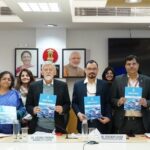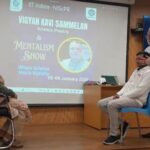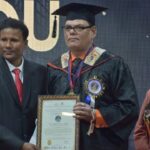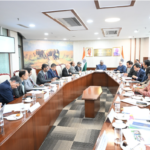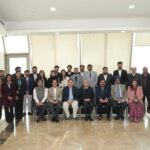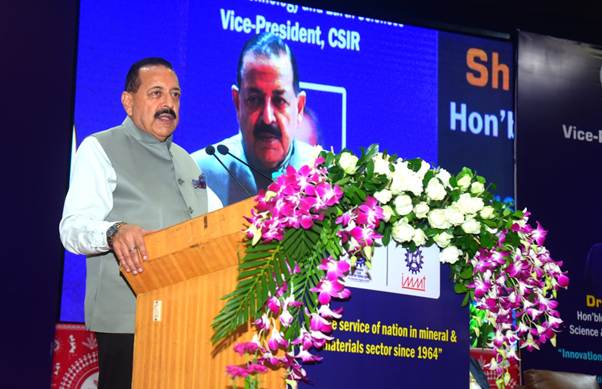
13 November 2025 | Bhubaneswar
On the eve of World Diabetes Day, Union Minister of State (Independent Charge) for Science & Technology, Dr. Jitendra Singh, inaugurated the “Phenome National Conclave on Longitudinal Cohort Studies: Cohort Connect 2025” at CSIR–IMMT, Bhubaneswar. The initiative, led by CSIR, is set to become India’s largest evidence-based study examining the genetic, lifestyle, and environmental factors that drive disease patterns across diverse Indian populations.
Addressing the inaugural session, Dr. Singh said the discussions hold special significance ahead of World Diabetes Day, as metabolic disorders—especially diabetes—have emerged as one of India’s most pressing national health challenges. He stressed that diabetes today is not only a clinical ailment but a full-spectrum condition leading to vascular, neurological, and renal complications, making long-term scientific research essential for national planning.
“Indian Data for Indian Solutions”
Highlighting India’s rising burden of metabolic diseases, the Minister asserted that “Indian data for Indian solutions is the only way to defeat diabetes.” He noted that Type-2 diabetes, once considered region-specific, has now become a widespread pan-India challenge due to rapid lifestyle and environmental transitions.
Dr. Singh emphasized the need for integrated health strategies, pointing to the link between diabetes and infections like tuberculosis, and cautioned against “one-size-fits-all” global approaches. India’s unique genetic and phenotypic characteristics, he said, demand India-specific prevention and treatment models.
A New Era in Precision Health
The Minister announced that India is rapidly progressing toward the milestone of one million human genome sequences, with nearly 10,000 genomes already mapped under CSIR and the Department of Biotechnology. He described this as a transformative step toward precision health and personalized medicine, backed by large-scale cohort data.
He also highlighted India’s breakthrough in advanced biomedical research, including the country’s first successful haemophilia trial using an indigenously developed Factor VIII, along with ongoing work on vaccines for dengue, malaria, and tuberculosis. AI-driven diagnostics and quantum-enabled health solutions, he said, are strengthening India’s medical ecosystem.
Need for Evidence-Based Public Health Policies
Dr. Singh urged caution in adopting new drugs or technologies without long-term evidence suitable for Indian populations. Citing historical examples—such as refined oils once promoted as heart-friendly but later linked to coronary disease in India—he underscored the importance of robust, long-term cohort studies.
With 70% of India’s population below 40, he emphasized that preventive healthcare must be at the center of national health planning, and comprehensive cohort studies like Phenome India will generate the actionable data required for evidence-based policy decisions.
Towards Viksit Bharat 2047
Calling cohort studies a “national imperative”, Dr. Singh stated that India’s health status in 2047 will be a defining parameter of Viksit Bharat. He noted that initiatives like Phenome India and Cohort Connect 2025 will play a foundational role in shaping India’s future health roadmap.
The event was attended by senior scientists including Dr. Ramanuj Narayan, Director of CSIR–IMMT; Dr. Maiti (CSIR–IGIB); Dr. Kooti; Dr. Debashish; project investigators; and media representatives. They briefed the press on the objectives and emerging insights from the Phenome India longitudinal cohort programme and outlined the agenda for the upcoming national conclave.

